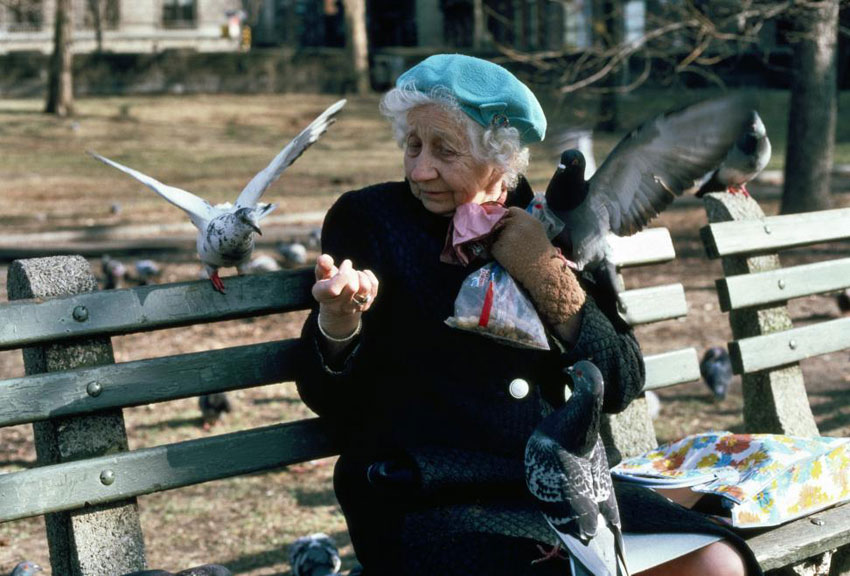By Kaitlyn Conway
If you live in Boston, more often than not, you utilize public transportation. And if you’re a senior citizen or disabled and you live in the city, but you intend to get anywhere, it’s likely that you depend upon the efficiency of public transportation, or private transportation companies meant to especially accommodate those with special needs. These private paratransit companies, such as The Ride, may seem at first blush to be the perfect solution to urban transportation problems that seniors and the disabled may face. Unlike the bus or subway, The Ride offers customers the convenience of home pickup service, and readily accommodates for the needs of customers who utilize equipment such as wheelchairs, mobility scooters, etc.
However, the downside is significant: The Ride is significantly more expensive than either the subway or the bus, costing the MBTA several dollars per trip, and overall billions for agencies per year. And what is even more troubling is the fact that paratransit riders are usually expected to make reservations 24 hours or more in advance, which leaves riders at the more or less at the mercy of the clock, rather than being able to go out when they need to. For example, if an elderly passenger needs to make a special visit to a doctor that would not require her calling an ambulance (which is also extremely expensive), she would most likely be at a loss unless she waited 24 hours. Fortunately, a solution has arrived: ridesharing apps.
Although ridesharing companies such as Uber, Lyft and Bridj were not initially equipped to accommodate the disabled, they are quickly adapting, and they have several pressing incentives to do so in the city of Boston. These companies have already teamed up with transit agencies in the city of Boston, creating unions for which both have profited. Not only have companies like Uber, Lyft and Bridj seen a consistent boom in business in the city, but the transit companies have a lot to gain from such partnerships: it stands to create a significant lowering of costs in paratransit services, as well as filling the gaps in service provided by the MBTA agencies. Even though there have been initial concerns that these ridesharing companies were not equipped to accommodate passengers who had unique physical needs, some companies like Uber and Lyft have made strides towards accommodations: Uber has developed a wheelchair-friendly service called UberASSIST, and Lyft has partnered with senior care companies to provide more mobility options. And with a 15 to 20% increase in Americans aged 65 or older by the age 2030, such innovation and convenience comes not a moment too soon. However, despite these efforts, these services claim that they are exempt from federal American with Disabilities Act regulations, because they are a tech platform.
The American with Disabilities Act (ADA), 42 U.S.C. § 12101, (a)(5) (1990), broadly includes that people shall not be discriminated against when seeking accommodation for transportation. When Uber brought the argument that they were were exempt on the grounds that they were a tech platform in the case of National Federation of the Blind of California v. Uber Technologies, Inc., 2014 WL 8480938, (N.D. Cal., December 17, 2014), the court stated that the plaintiffs had been in fact discriminated under the ADA because, “ [plaintiff] has suffered a concrete and particularized injury because he has been deterred from using UberX services by Uber’s discrimination,” and “[plaintiff’s] injury is actual and imminent, and he faces a sufficient likelihood of future harm…continues to be deterred from using the UberX service, and he intends to use UberX once Uber changes its policies and practices to end discrimination against blind customers with guide dogs.” The case is currently still in litigation.
In the meantime, Massachusetts, particularly the city and commuters of Boston, stand to gain a great deal with the potential in the merging of rideshare and paratransit companies, with riders no longer feeling as if they are hostage to the unavailability of providers, and companies being able to cut costs with the merger. As long as there is a broad, legally-informed company policy which defines how to best accommodate passengers with special needs, there is no reason to believe why these mergers could not benefit everyone, including Nana, in the long run.
Student Bio: Kaitlyn is a 3L Juris Doctor Candidate at Suffolk Law School, who is expected to graduate in May 2017. She is the web administrator on the Journal of High Technology, as well as a member of the Indigenous Peoples Rights Clinic.
Links: https://www.wired.com/2016/09/ridesharing-paratransit-seniors/; https://www.wired.com/2015/08/uber-disability/
Disclaimer: The views expressed in this blog are the views of the author alone and do not represent the views of JHTL or Suffolk University Law School.

